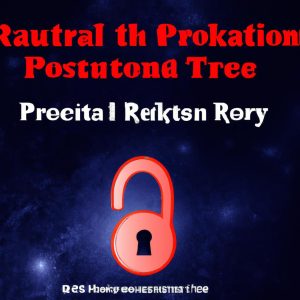Oregon Governor Reinstates Criminal Penalties for Possession of Hard Drugs
In a significant reversal of a groundbreaking law, Oregon Governor Tina Kotek signed a bill on Monday that restores criminal penalties for possessing small amounts of hard drugs. This decision comes amidst a growing addiction and overdose crisis in the state, prompting advocates to rethink their approach to drug policy.
The original law, which was the first of its kind in the nation, aimed to address drug addiction as a public health issue rather than a criminal one. It decriminalized the possession of small amounts of hard drugs, such as heroin and methamphetamine, and redirected funds towards treatment and harm reduction programs.
However, the law faced criticism and challenges as the addiction crisis continued to worsen. Critics argued that decriminalization had unintended consequences, such as enabling drug use and trafficking. Law enforcement officials also expressed concerns about the lack of tools to intervene in cases of drug possession.
With the new bill signed into law, Oregon will once again impose criminal penalties for possessing hard drugs. This shift reflects a broader debate on how to effectively address drug addiction and related issues. While advocates for decriminalization emphasize the importance of treating addiction as a health issue, opponents argue that criminal penalties are necessary to deter drug use and protect public safety.
Moving forward, Oregon will need to find a balance between addressing addiction as a public health crisis and maintaining law and order. The decision to reinstate criminal penalties for drug possession marks a significant shift in the state’s approach to drug policy, highlighting the complex and evolving nature of this issue.

Oregon Takes a Tough Stance on Small Amounts of Hard Drugs
In an effort to address drug addiction and reduce mass incarceration, Oregon recently passed Measure 110, which takes a unique approach to handling small amounts of hard drugs. This groundbreaking legislation decriminalizes the possession of drugs such as heroin, methamphetamine, and cocaine for personal use. Instead of facing criminal charges, individuals found in possession of these substances will now have the option to pay a fine or attend a health assessment.
Key Points of Measure 110:
- Decriminalizes possession of small amounts of hard drugs
- Offers individuals the choice of paying a fine or attending a health assessment
- Redirects funds from law enforcement to addiction treatment and recovery services
- Focuses on addressing drug addiction as a public health issue rather than a criminal offense
Benefits of Measure 110:
Measure 110 aims to shift the focus from punishment to treatment for individuals struggling with addiction. By decriminalizing drug possession, Oregon hopes to reduce the stigma associated with substance abuse and make it easier for individuals to seek help. Some key benefits of this approach include:
- Reduced incarceration rates for non-violent drug offenses
- Increased access to addiction treatment and recovery services
- Prevention of lifelong criminal records for minor drug offenses
- Reallocation of funds from law enforcement to public health initiatives
Practical Tips for Individuals:
If you or someone you know is struggling with drug addiction, there are resources available to help. Here are some practical tips for navigating the changes brought about by Measure 110:
- Reach out to local addiction treatment centers for support
- Take advantage of the health assessment option provided by the legislation
- Seek counseling or therapy to address the underlying causes of addiction
- Stay informed about the resources and services available in your community
Case Study: John’s Experience with Measure 110:
John, a long-time heroin user, was apprehensive about seeking help for his addiction due to fear of legal repercussions. However, after Measure 110 was implemented, he decided to take advantage of the health assessment option. Through the assessment, John was able to connect with addiction treatment services and has been on the path to recovery ever since.
Conclusion:
Oregon’s approach to addressing drug addiction through Measure 110 marks a significant shift in how society views and responds to substance abuse. By prioritizing treatment over punishment, the state hopes to create a more compassionate and effective system for supporting individuals struggling with addiction. While the legislation is still in its early stages, the potential benefits for both individuals and communities are promising.
The post Oregon Takes a Tough Stance on Small Amounts of Hard Drugs appeared first on lawyer.bet.












